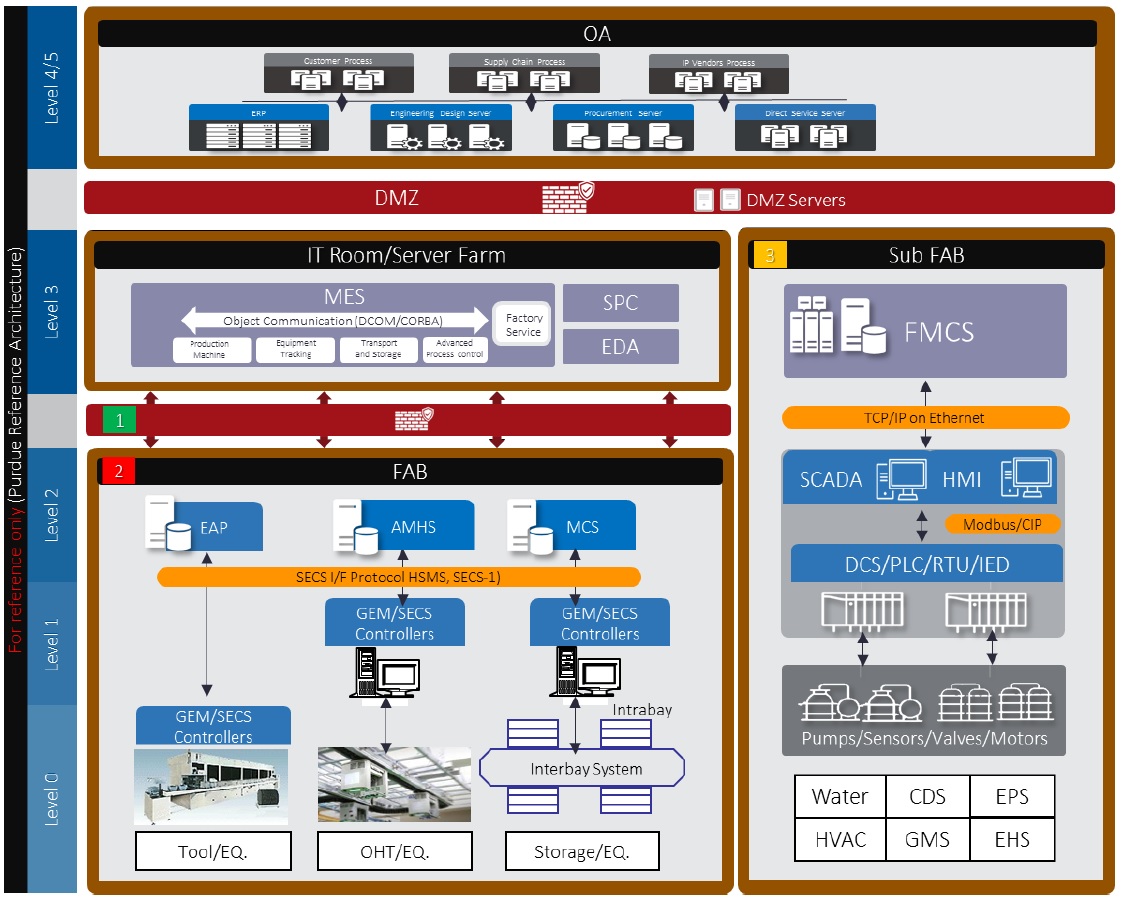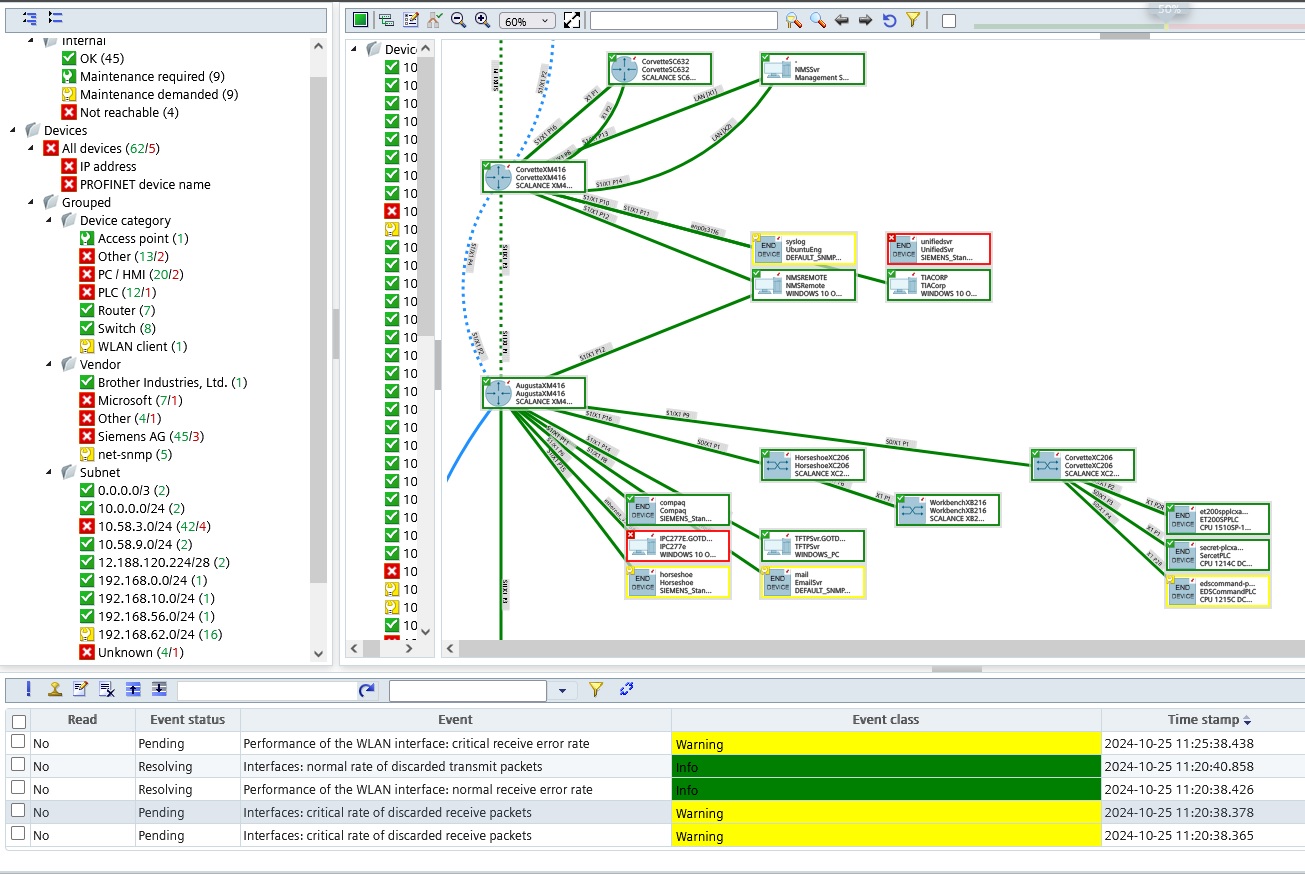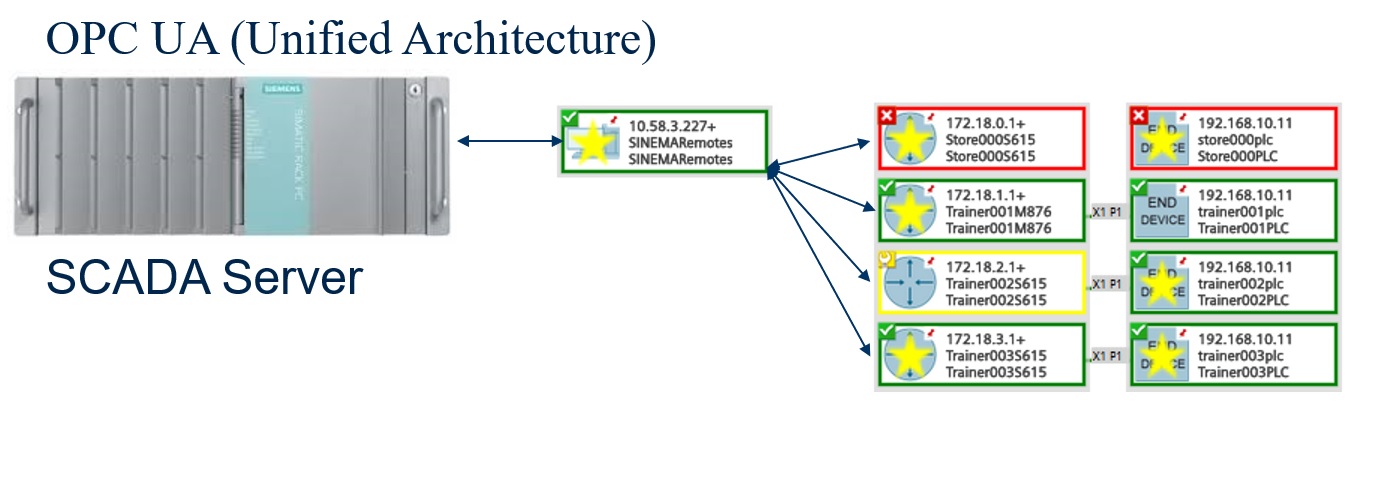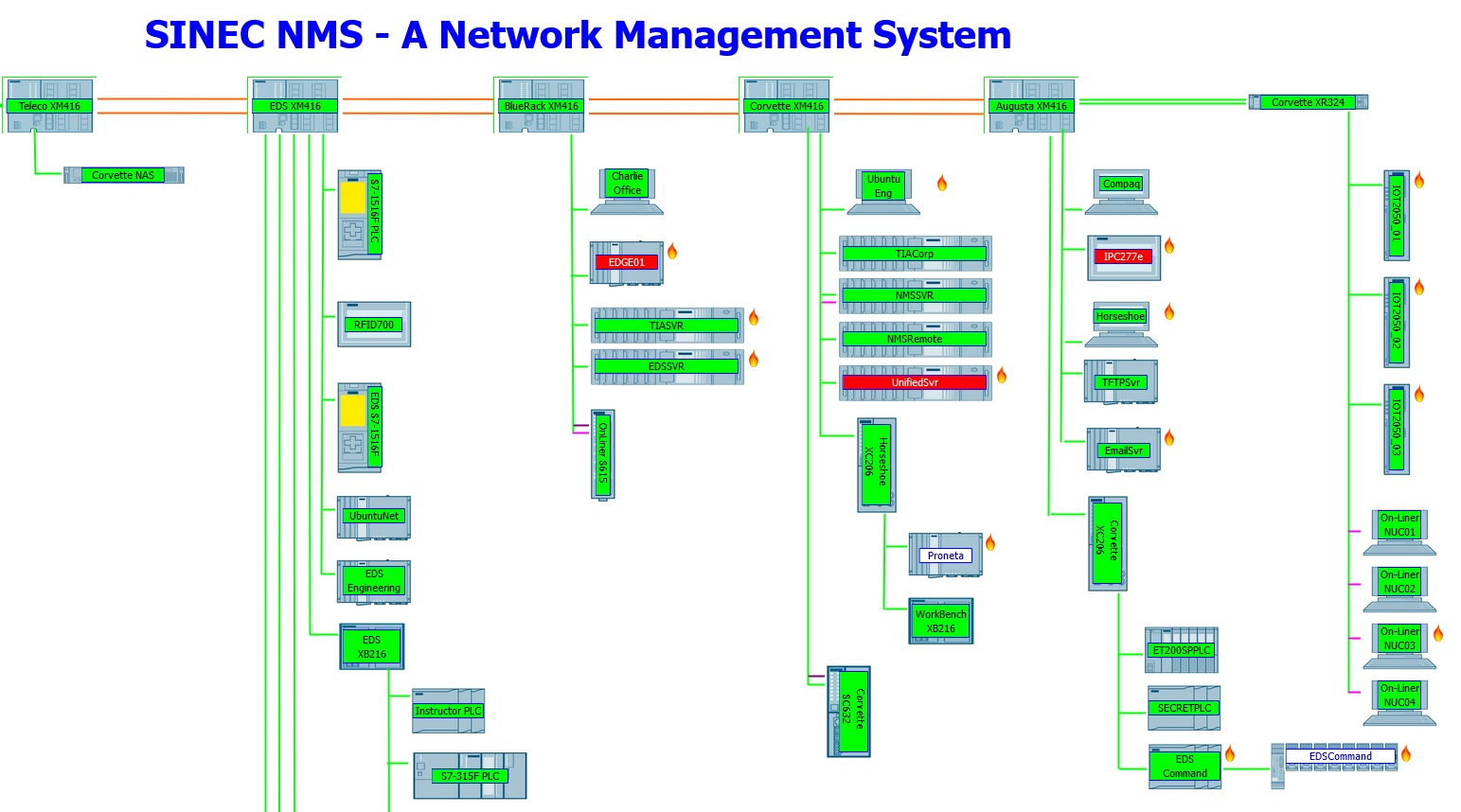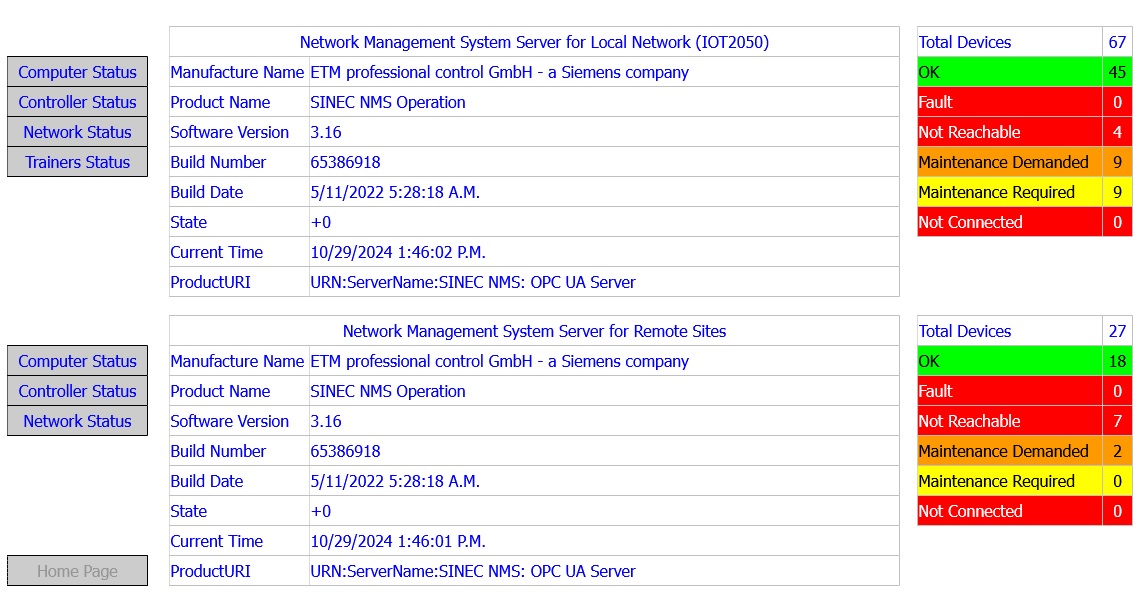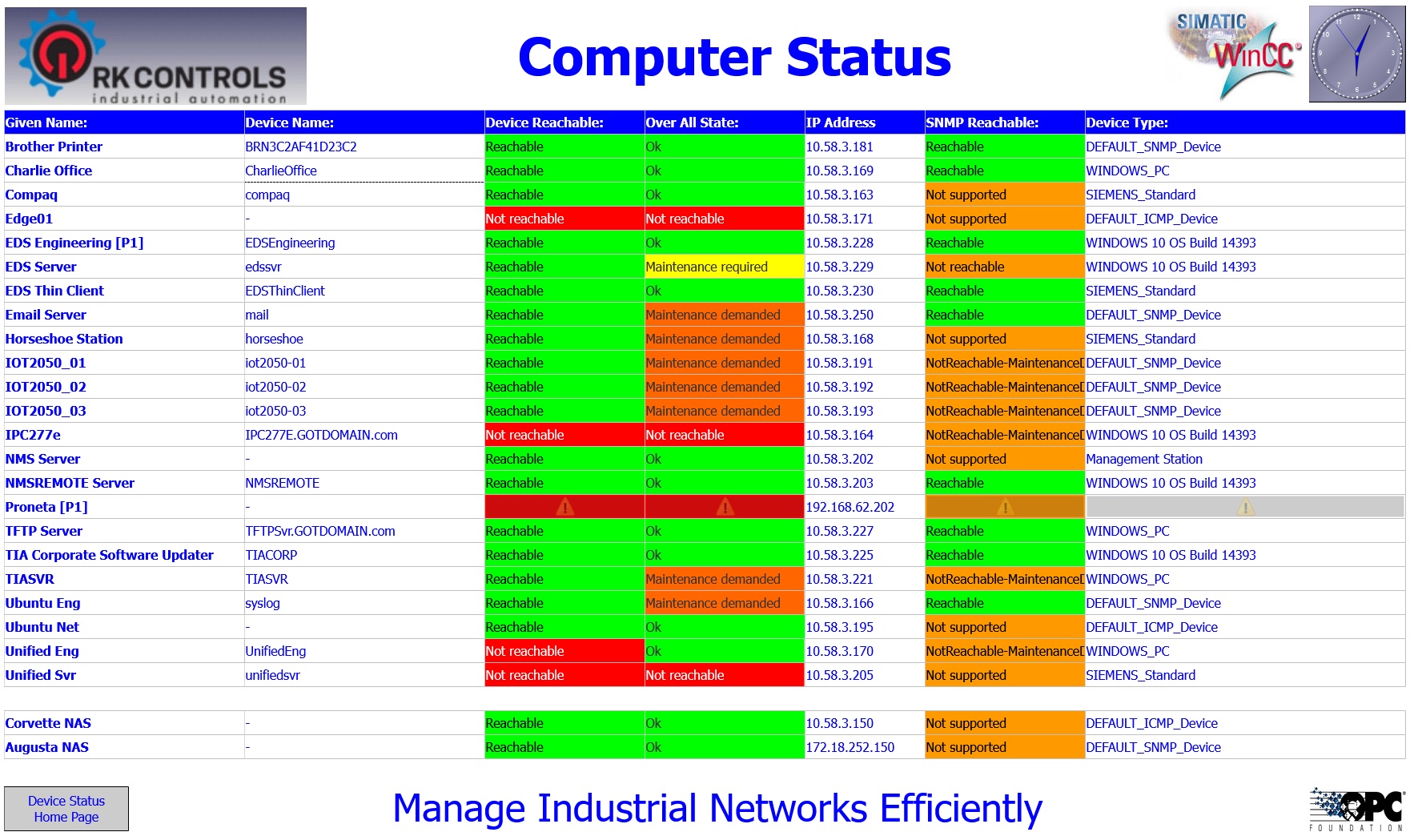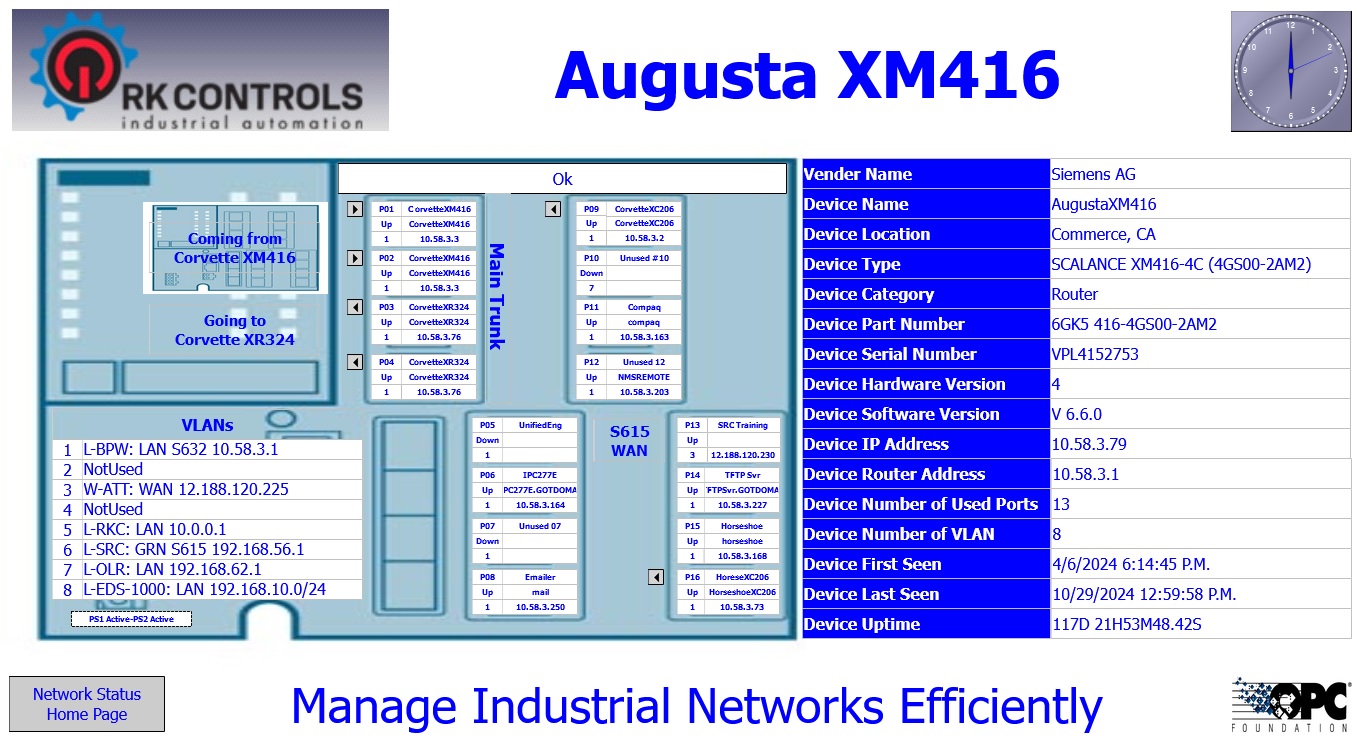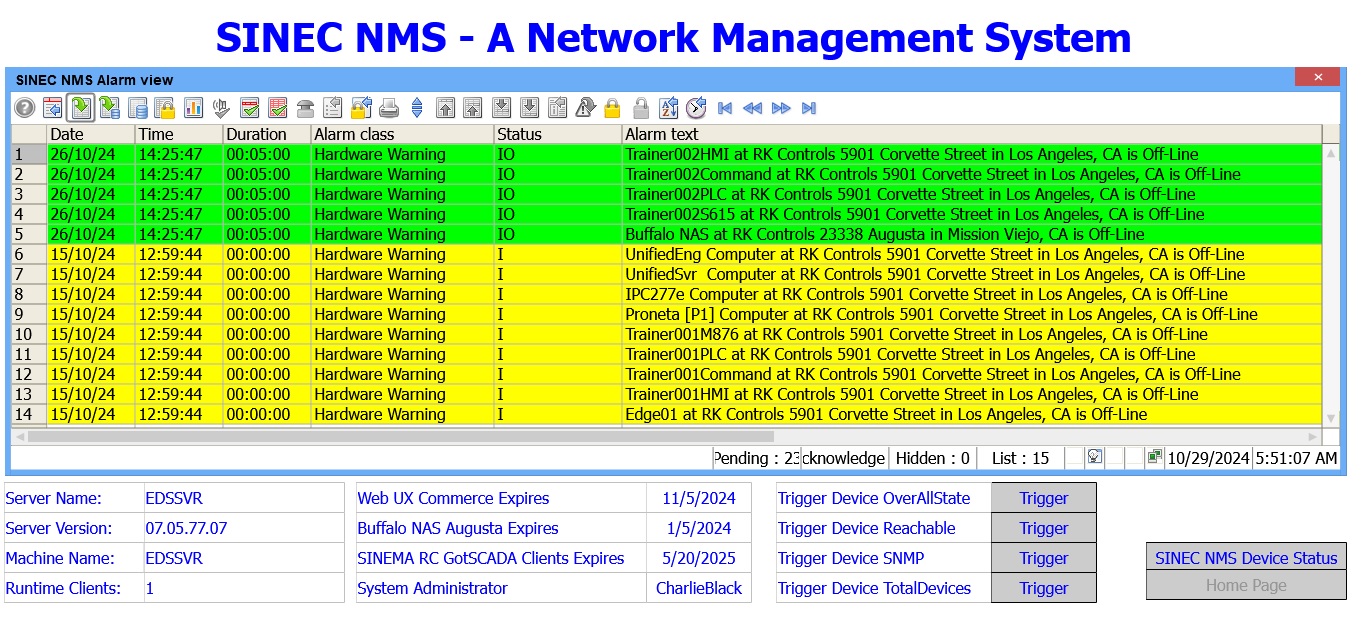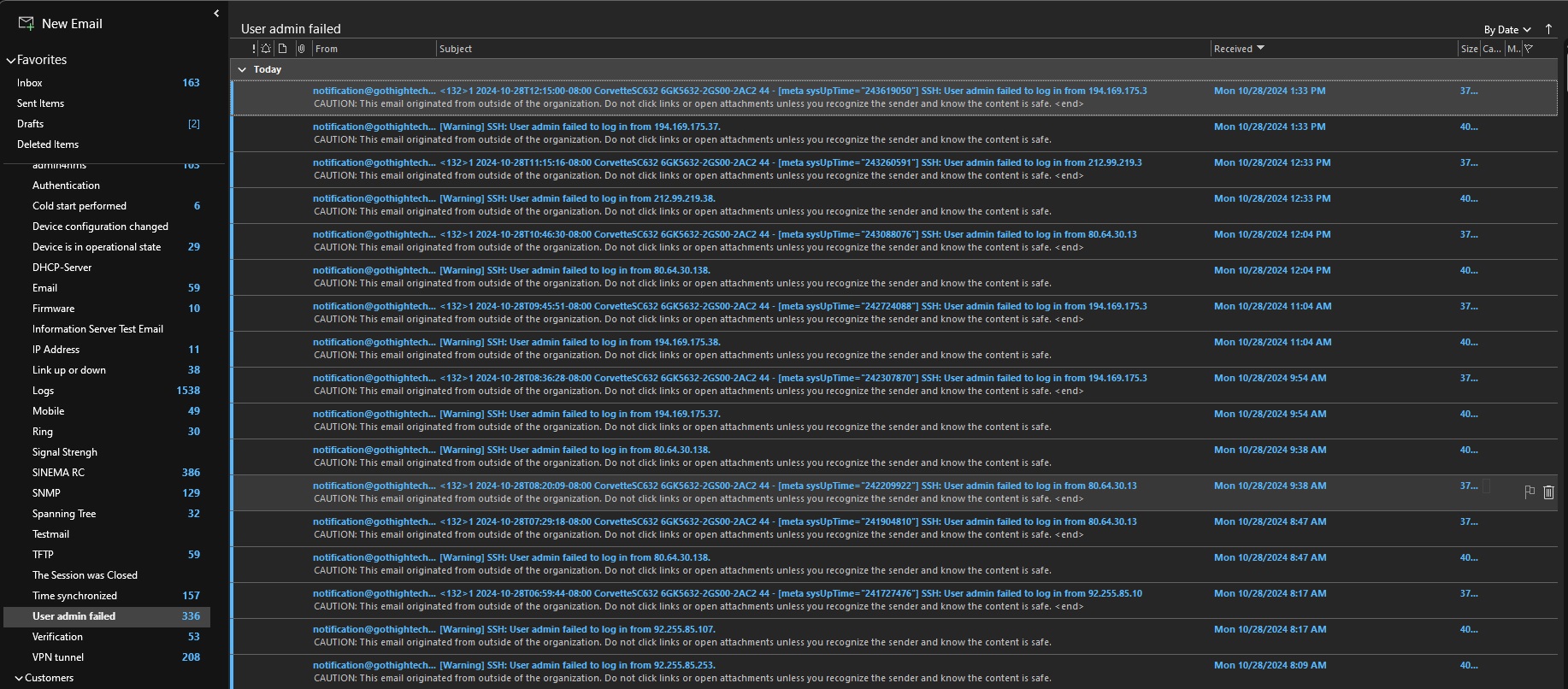🔑 Effective Network Management Strategies
The Critical Importance of Network Monitoring
In today's fast-paced industrial environment, monitoring your network is not just an option; it's a
necessity. As manufacturing processes become increasingly complex, the reliance on interconnected devices
grows, making the industrial plant floor more vulnerable to network disruptions. A single failure can halt
production, leading to significant financial losses and wasted resources. Continuous network monitoring
ensures that you can quickly identify and address issues before they escalate, safeguarding your operations
and maintaining productivity. With solutions like a Network Management System, you gain the capability to
visualize and manage
your entire network infrastructure from a centralized point, allowing for immediate response to potential
disruptions and ensuring optimal performance around the clock.
The Power of Real-Time Data
The advent of advanced monitoring tools has revolutionized how industrial networks are managed. Tools like
Network Management System Server provide real-time insights into your network's status, enabling you to make
informed decisions
that enhance operational efficiency. By automatically detecting devices and analyzing network topology,
these systems offer valuable data on performance metrics and fault diagnostics. This immediate access to
information not only helps in troubleshooting but also assists in optimizing network configurations and
ensuring seamless communication between devices. The integration of such monitoring solutions is essential
for maintaining a resilient network that can adapt to the ever-evolving demands of modern industrial
operations.
Enhancing Security and Reducing Downtime
With the rise in cyber threats targeting industrial infrastructures, securing your network is
paramount. Implementing a robust network management system enables you to not only monitor performance
but also protect your critical assets from vulnerabilities. Continuous oversight helps identify
potential security breaches and ensures that your systems are up to date with the latest firmware,
minimizing the risk of cyberattacks. Furthermore, the ability to back up device configurations and
manage firmware updates centrally means you can swiftly recover from incidents, significantly reducing
downtime. In an era where operational efficiency and security are intertwined, investing in
comprehensive network management is essential for sustaining your competitive edge in the
industry.
🔍 Challenges in Network Complexity
The complexity and the number of nodes in Ethernet-based production networks are growing
constantly due to increasing requirements. The failure of individual devices in such networks can mean
loss of production and, in the worst case, bring the production chain to a standstill. To minimize
unproductive times and the resulting costs, transparency of networks with continuous network monitoring
is indispensable.
➡️ Growing complexity in Ethernet-based networks
➡️ Device failures can halt production completely
➡️ Minimizing downtime is crucial for efficiency
➡️ Network transparency is essential for management
🛠️ Intergrate SCADA using the OPC UA
Connecting your network management system to a Supervisory Control and Data Aquistion (SCADA) system
using the OPC UA standard revolutionizes the way you manage and visualize your network. This powerful
integration ensures that you can access crucial
data seamlessly, enabling you to extract meaningful insights from your operational environment. With OPC UA,
you can interface with any SCADA system that supports this standard, unlocking a wealth of information that
is vital for effective network oversight.
Additionally, the built-in Syslog server adds another layer of functionality, allowing for
comprehensive
logging and analysis of events across your network. Any OPC client can interact with the OPC server,
providing you with the flexibility to view real-time data and make informed modifications. This integration
not only empowers your team to maintain network health but also fosters a culture of proactive management,
where issues are addressed before they escalate into significant disruptions. Embrace the power of network
management with OPC UA and SCADA integration, and transform your operational capabilities today.
➡️ Seamless SCADA system integration
➡️ Real-time device status monitoring
➡️ Color-coded network overview dashboard
➡️ Comprehensive device information access
➡️ Proactive issue detection and diagnosis
➡️ Customizable alarm notifications via email
➡️ Built-in Syslog server functionality
➡️ Track connected devices effortlessly
➡️ Enhanced operational efficiency and visibility
➡️ Empowered decision-making for maintenance teams
🛠️ SCADA System Network Layout
Imagine creating a comprehensive network overview dashboard, where you can visually track the status
of all
your Ethernet devices. By utilizing color-coded indicators, you can quickly assess device health at a
glance. Detailed device information—such as vendor name, device type, location, IP address, and
gateway—becomes easily accessible, allowing for immediate troubleshooting and maintenance decisions.
Furthermore, you can monitor port-specific data, including which devices are connected, their IP addresses,
and whether ports are operational or experiencing issues.
🛠️ Network Management System Devices Status
With the Network Management System, you will have a comprehensive overview of your network's status
at your fingertips, providing important information about the overall condition of your network. This system
tracks your devices and delivers real-time data regarding their status, allowing you to easily see whether a
device is functioning properly, has a fault, is not reachable, requires maintenance, or is not connected,
all through a user-friendly interface. Additionally, the ability to monitor the number of devices on your
network enhances your understanding of its capacity and performance.
🛠️ Detailed Device Status
The system provides comprehensive information about each device in your network, displaying its
assigned name for quick identification. It indicates whether the device is reachable, helping you assess its
availability and connectivity, and shows the overall state of the device, whether it is operational,
experiencing issues, or requires maintenance. Additionally, the system presents the device's IP address,
which is crucial for effective network management and troubleshooting. You can also check if SNMP (Simple
Network Management Protocol) is active, enabling efficient monitoring, and it specifies the type of device,
allowing you to understand the nature of each component in your network. This thorough overview empowers you
to maintain and optimize your network with confidence.
🛠️ Ethernet Switches and Router Information
Finding important data and information has never been easier. With our system, you can access
real-time data from managed Ethernet switches and routers directly on a web interface. This allows you to
see which Ethernet devices are connected to specific ports, such as port #01, and determine if those ports
are active, operational, or blocked. You’ll have immediate visibility into the status of your network
connections, ensuring you can manage and troubleshoot effectively.
In addition to connection status, our system provides comprehensive product information for each
Ethernet
device. You'll have access to key details such as the vendor name, device name, location, vendor part
number, and serial number, making replacements simple and efficient. It also displays the firmware version
for necessary cybersecurity updates and the number of open ports available on each device. You can track
uptime and see when each device was last active, helping you maintain optimal network performance.
Understanding the VLANs configured on your Ethernet switch is essential for network management. Our
system
gives you insights into the number of active VLANs and their associated networks, ensuring you have clarity
on how your network is segmented. Additionally, with dual power supplies on these Ethernet switches, you can
monitor their status and receive alarms if a power supply fails, allowing for proactive management and
minimizing downtime.
🛠️ Network Management System Alarms
Having a detailed alarm manager for your network is essential; it’s hard to imagine operating
without one. The uncertainty of what’s happening on your network can lead to lost revenue and costly
downtime. When issues arise, lacking the right tools for troubleshooting can be detrimental. An
effective alarm manager provides real-time visibility into your network’s activities, allowing you to
quickly identify problems and respond proactively.
With an alarm manager in place, you can instantly know if a power supply has failed, if a port becomes
active, or who is connecting to your network and why. It’s crucial to understand when a device goes
offline and when it comes back online, as well as to keep track of firmware updates. All these events
can be configured within your alarm manager, ensuring you’re always informed about the status of your
network and can act swiftly to mitigate any potential issues. Empower your network management with a
robust alarm system that enhances visibility and control.
🛠️ Network Management System Emails
Having an effective alarm notification system in place is crucial for any industrial plant,
especially when it comes to safety and process management. While SCADA screens provide valuable
information, they are only useful if you are physically present to monitor them. What happens when
you're away from the plant? To ensure the safety and awareness of plant operators and workers, we
install high-quality industrial mass notification systems that deliver emergency alerts directly to
your mobile devices.
Alarm notifications are essential for timely process management. After an alarm event occurs,
it is
vital to send immediate email or SMS alerts to notify operators of any abnormal conditions or
malfunctions that require urgent attention. Our systems allow plant operators to receive real-time
alerts and updates via SMS and email, ensuring they are informed as soon as an issue arises, along
with ongoing plant status updates. These notifications act as the first line of defense, keeping
operators connected and empowered to respond quickly, no matter where they are. An alarm is more
than just a message; it’s a critical tool that informs operators of what's happening at the plant,
helping to maintain safety and operational efficiency.
🛠️ In Closing
In today's complex industrial landscape, effective network monitoring is essential for
safeguarding operations and maintaining productivity. As reliance on interconnected devices
increases, the risk of disruptions grows, making continuous oversight a necessity. Advanced
monitoring tools, such as Network Management Systems, provide real-time insights that enhance
operational efficiency and enable prompt troubleshooting. Additionally, robust security measures
protect critical assets from cyber threats, ensuring your network remains resilient and responsive.
By investing in comprehensive network management solutions, you not only secure your infrastructure
but also position your organization to thrive in an increasingly competitive environment.
